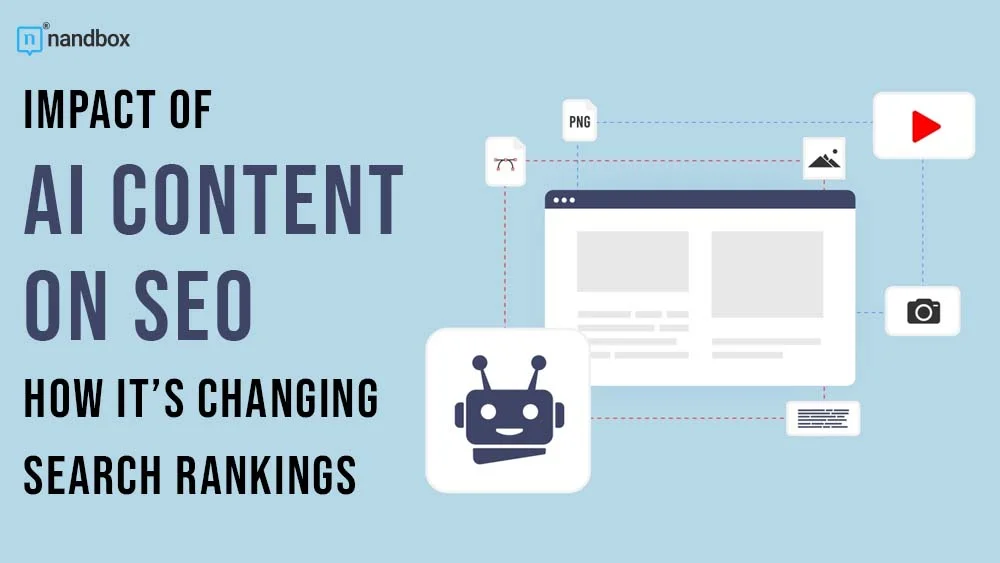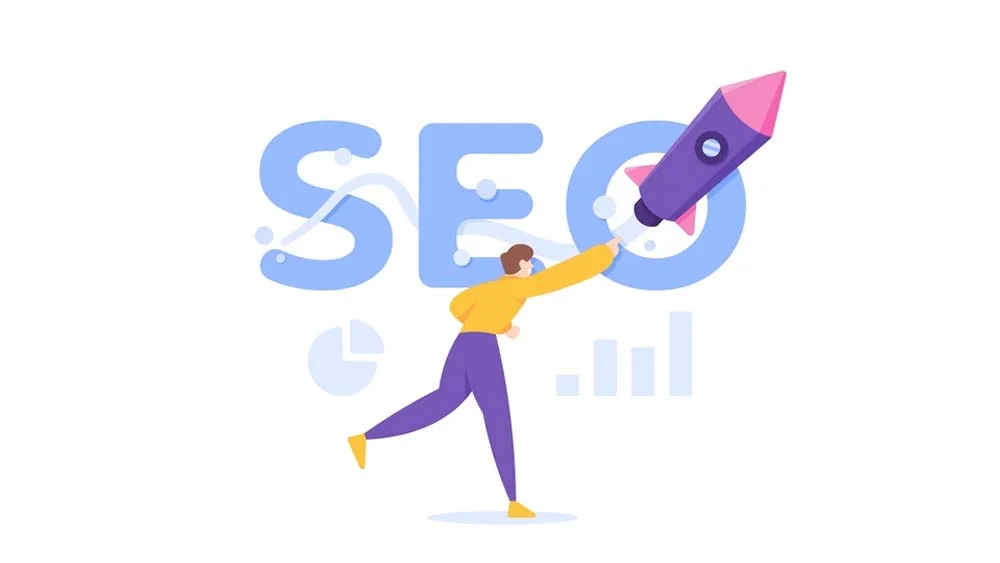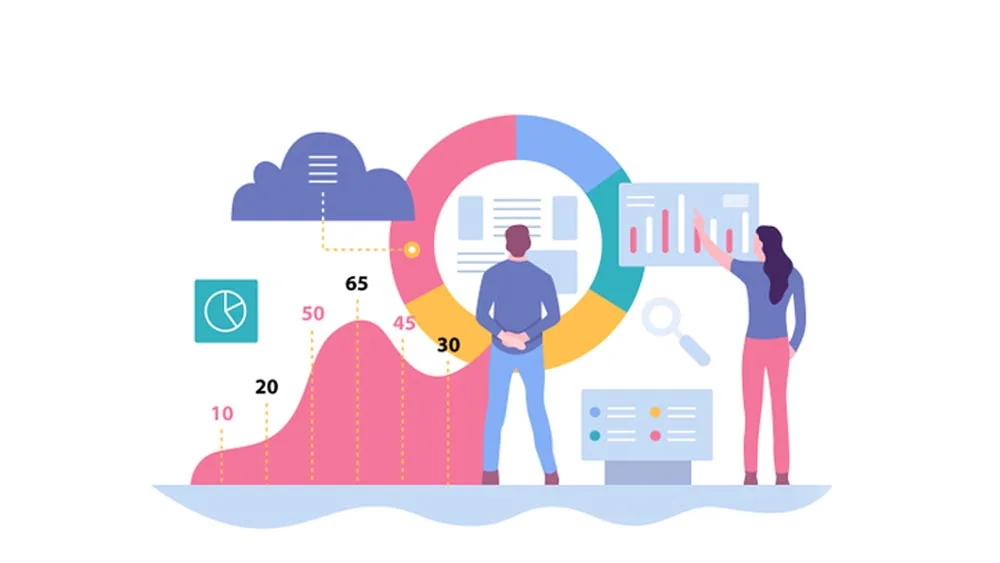AI Content & SEO: Is AI Killing Organic Search Results?
Artificial Intelligence (AI) has transformed search engine optimization (SEO) and organic search results. As businesses and content creators explore this changing digital environment, understanding the impact of AI content is crucial for developing SEO-effective strategies and staying ahead of the competition. Explore how AI is reshaping SEO, its influence on organic search results, and what it means for the future of search engine optimization.
The AI Revolution In SEO
How AI Is Changing The SEO Landscape
The use of AI in SEO has brought about significant changes in the way search engines understand and rank content. Two key aspects of this transformation are AI-powered search algorithms and advancements in natural language processing.
AI-Powered Search Algorithms
Search engines like Google are increasingly relying on AI algorithms to deliver more accurate and relevant search results. These algorithms can analyze vast amounts of data, identify patterns, and make intelligent decisions to improve the quality of search results. As a result, SEO strategies must adapt to these AI-driven changes to remain effective.
AI-powered natural language processing (NLP) has revolutionized how search engines understand user queries and determine the intent behind them. NLP enables search engines to comprehend the context and meaning of search queries, leading to more precise and personalized search results. SEO professionals must now focus on creating content that aligns with user intent and provides value to the target audience.
The Rise Of AI-Generated Content
The emergence of AI-generated content has sparked both excitement and concern in the SEO community. While AI can assist in creating content at scale, it also raises questions about quality and authenticity.
Quality And Authenticity Concerns
One of the primary concerns surrounding AI-generated content is its ability to match the quality and authenticity of human-created content. Search engines prioritize high-quality, original content that provides value to users. AI-generated content that lacks depth, creativity, and a human touch may struggle to rank well in search results.
Balancing AI And Human Creativity
To harness the power of AI in content creation while maintaining quality, it is essential to strike a balance between AI-assisted tools and human creativity. AI can be used to streamline research, generate ideas, and optimize content structure, but human expertise and editorial oversight remain crucial for creating engaging and valuable content. For those seeking to enhance AI-generated content with a human touch, tools such as Twixify provide solutions to humanize AI text. Addressing the need for content that reflects a unique voice and style, these advanced tools help bypass AI detection mechanisms without compromising authenticity.
Hiring An SEO Company
As AI becomes more prevalent in SEO, businesses must carefully consider the expertise and capabilities of SEO companies they partner with.
Evaluating AI Expertise In SEO Firms
When hiring an SEO company, it is crucial to assess their understanding and proficiency in leveraging AI for SEO strategies. A reputable SEO firm like SEO Advantage Australia or First Page, a Wellington SEO company should demonstrate extensive knowledge of AI-driven SEO techniques and have a proven track record of delivering results in the AI era.
An experienced SEO company will be able to effectively integrate AI-driven strategies into their overall SEO approach. This includes utilizing AI tools for keyword research, content optimization, and performance analysis while maintaining a focus on creating valuable, user-centric content.
AI’s Influence On Organic Search Results
Shifts In Ranking Factors
AI has brought about significant shifts in the factors that influence search engine rankings. Two notable changes are the increased emphasis on content relevance and user experience. To stay ahead of these evolving trends, an AI-powered SEO agent can provide real-time insights and predictive analytics, helping you optimize your strategy effectively.
Content Relevance And User Experience
With AI-powered algorithms, search engines are better equipped to assess the relevance and quality of content in relation to user queries. This means that content must not only target relevant keywords but also provide genuine value and a positive user experience. Factors such as engagement metrics, time on page, and bounce rates are becoming increasingly important in determining rankings.
AI enables search engines to deliver personalized search results based on a user’s search history, location, and other contextual factors. This personalization aims to provide users with the most relevant and useful information designed to meet their specific needs. SEO strategies must consider these personalization factors and create content that resonates with the target audience.
The Evolution Of SERP Features
AI has also influenced the way search engine results pages (SERPs) are structured and displayed. Two significant developments are the prominence of rich snippets and knowledge graphs.
Rich Snippets And Knowledge Graphs
Rich snippets, such as featured snippets and structured data, have become more prevalent in SERPs. These snippets provide users with quick answers and relevant information directly on the search results page. AI algorithms are used to extract and display the most relevant information from web pages, making it crucial for SEO to optimize content for these rich snippets.
Knowledge graphs, powered by AI, offer users an in-depth look at a topic by compiling information from diverse sources. Appearing in knowledge graphs can significantly boost a website’s visibility and establish it as an authoritative source of information.
The rise of voice assistants and smart speakers has led to an increase in voice search queries. AI plays a crucial role in understanding and processing these conversational queries. SEO strategies must adapt to optimize content for voice search by focusing on long-tail keywords, conversational language, and concise answers to common questions.
Impact On Local SEO
AI and AI content have also had a significant impact on local SEO, affecting how businesses are found and ranked in local search results.
AI-Enhanced Local Search Algorithms
AI-powered local search algorithms take into account various factors, such as a business’s proximity to the user, online reviews, and local citations, to determine its relevance and ranking in local search results. SEO strategies for local businesses must focus on optimizing these factors to improve their visibility in local searches.
The increasing popularity of “near me” searches has made it essential for local businesses to optimize their online presence for these queries. AI algorithms use the user’s location and search intent to deliver the most relevant local results. Local businesses must ensure their Google My Business listings are accurate, complete, and optimized with relevant keywords to rank well in “near me” searches.
Optimizing Content For AI And Users
Balancing Keyword Optimization And Natural Language
To create content that appeals to both AI algorithms and human readers, it is essential to strike a balance between keyword optimization and natural language.
Semantic SEO Strategies
Semantic SEO focuses on understanding the intent and context behind search queries rather than solely relying on exact keyword matches. By creating content that comprehensively covers a topic and uses related keywords and phrases, websites can improve their relevance and rankings for a wider range of search queries.
Organizing content into topic clusters and content silos can help search engines understand the relationships between different pieces of content on a website. By creating a clear hierarchy and linking related content together, websites can establish themselves as authoritative sources on specific topics, improving their overall SEO performance.
Leveraging AI For Content Creation
While AI-generated content raises concerns about quality and authenticity, AI tools can still be leveraged to assist in the content creation process.
AI-Assisted Research And Topic Generation
AI-powered tools can help content creators identify trending topics, gather relevant data, and generate content ideas. These tools can streamline the research process and provide insights into what users are searching for, allowing content creators to create more targeted and valuable content.
Maintaining A Human Touch In AI-Generated Content
When using AI-generated content, it is crucial to maintain a human touch by carefully reviewing, editing, and enhancing the content. Human expertise is essential for adding depth, creativity, and a unique perspective that AI algorithms may lack. By combining AI-assisted tools with human oversight, content creators can produce high-quality, engaging content that resonates with users.
Enhancing User Experience With AI
AI can be used to enhance the user experience on websites, leading to improved engagement and SEO performance.
Personalized Content Recommendations
AI algorithms can analyze user behavior and preferences to deliver personalized content recommendations. By presenting users with content that is most relevant to their interests, websites can increase engagement, reduce bounce rates, and improve overall user satisfaction.
Integrating chatbots and conversational AI on websites can provide users with instant assistance, answer common questions, and direct them to relevant content. These AI-powered tools can enhance the user experience, reduce customer support workload, and improve website navigation, all of which can positively impact SEO.
Measuring AI’s Impact On SEO Performance
Key Performance Indicators In The AI Era
As AI transforms the SEO field, it is crucial to adapt the way we measure and analyze SEO performance.
Organic Traffic Quality Metrics
In addition to traditional metrics like organic traffic volume, it is crucial to focus on the quality of organic traffic. Leveraging tools and strategies from platforms like SirLinksalot, you can enhance your understanding of key metrics such as bounce rate, time on site, pages per session, and conversion rates. These metrics provide deeper insights into how well the website is meeting user expectations and delivering value.
User Engagement And Retention
AI-powered SEO strategies should aim to improve user engagement and retention. Monitoring metrics like scroll depth, click-through rates, and return visitor percentage can help assess the effectiveness of content in capturing and retaining user attention.
AI-Powered Analytics Tools
AI-powered analytics tools offer advanced capabilities for monitoring and optimizing SEO performance.
Predictive Analytics For SEO
Predictive analytics tools use AI algorithms to forecast future SEO trends, identify potential opportunities, and anticipate challenges. By leveraging these insights, SEO professionals can proactively adapt their strategies and stay ahead of the competition.
AI-powered tools can provide real-time monitoring of SEO performance, alerting website owners to any sudden changes or anomalies. This allows for quick identification and resolution of issues, minimizing the impact on organic search rankings.
Adapting SEO Strategies Based On AI Insights
SEO tactics must constantly change in order to remain effective in the AI era, taking into account the insights that AI tools and analysis provide.
Continuous Learning And Optimization
SEO professionals must embrace a continuous learning approach, staying up-to-date with the latest AI developments and best practices. By regularly analyzing AI-generated insights and making data-driven optimizations, websites can improve their SEO performance over time.
As AI continues to advance, it is essential to future-proof SEO practices by focusing on creating high-quality, user-centric content that aligns with the principles of AI-driven search algorithms. This involves prioritizing factors like relevance, user experience, and engagement while adapting to emerging trends and technologies.
Frequently Asked Questions
-
How does AI-generated content affect website rankings?
AI-generated content can have both a positive and negative impact on website rankings and not only on SEO. While AI can help create content at scale, the quality and relevance of the content are crucial factors.
Search engines prioritize high-quality, original content that provides value to users. AI-generated content that lacks depth, creativity, and a human touch may struggle to rank well in search results.
-
Can AI completely replace human SEO specialists?
While AI is transforming the field of SEO, it is unlikely to completely replace human SEO specialists. AI can automate certain tasks, provide valuable insights, and assist in content creation, but human expertise remains essential for strategic decision-making, creativity, and adaptability. The most effective SEO strategies will likely involve a collaboration between AI tools and human specialists.
-
What are the ethical considerations for using AI in SEO?
The use of AI in SEO raises ethical concerns, particularly in relation to the transparency and authenticity of AI-generated content. Websites need to disclose when content is generated or assisted by AI to maintain trust with users. The potential for AI to be used for manipulative or spammy SEO practices must be addressed through guidelines and best practices.
-
How can small businesses leverage AI for SEO without breaking the bank?
Small businesses can use AI for SEO by employing affordable or free AI-powered tools for keyword research, content optimization, and analytics. Many SEO platforms offer AI-assisted features as part of their standard packages. Small businesses can also partner with SEO companies that have expertise in AI-driven strategies to access advanced tools and insights at a reasonable cost.
-
Will AI make traditional keyword research obsolete?
While AI is changing the way keyword research is conducted, it is unlikely to make traditional keyword research completely obsolete. AI-powered tools can provide valuable insights into user intent, semantic relationships, and content gaps, but human judgment is still required to interpret and apply these insights effectively. Keyword research in the AI era will likely involve a combination of traditional methods and AI-assisted tools.
Conclusion
The impact of AI content on SEO and organic search results is profound and far-reaching. As search engines become more sophisticated and AI-driven, businesses and content creators must adapt their strategies to stay competitive. By understanding the shifts in ranking factors, the evolution of SERP features, and the importance of user experience, SEO professionals can harness the power of AI to improve their online visibility and attract qualified traffic.
However, it is crucial to approach AI as a tool for enhancing SEO strategies rather than a replacement for human expertise. By striking a balance between AI-assisted tools and human creativity, businesses can create high-quality, user-centric content that resonates with both search engines and users.
As the AI field continues to advance, SEO professionals must commit to ongoing learning, experimentation, and adaptation. By staying ahead of the curve and leveraging AI insights to make data-driven decisions, businesses can future-proof their SEO practices and thrive in the era of AI-driven search.






